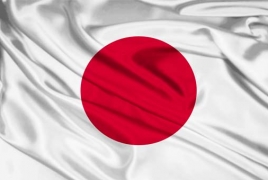Japan signals end for $10 billion prototype nuke reactor September 30, 2016 - 10:18 AMT PanARMENIAN.Net - Japan signaled on Wednesday, September 28 it would scrap a costly prototype nuclear reactor that has operated for less than a year in more than two decades at a cost of 1 trillion yen ($9.84 billion), Reuters reports. Tokyo believes it would be difficult to gain public support to spend several hundreds of billion yen to upgrade the Monju facility, which has been plagued by accidents, missteps and falsification of documents. There is also a strong anti-nuclear sentiment in Japan in reaction to the 2011 Fukushima atomic disaster and calls to decommission Monju have been growing in the ruling Liberal Democratic Party, with scant results from using around 20 billion yen of pubic money a year for maintenance alone. Monju was designed to burn plutonium from spent fuel at conventional reactors to create more fuel than it consumes. The process is appealing to a country whose limited resources force it to rely on imports for virtually all its oil and gas needs. Science Minister Hirokazu Matsuno, Trade Minister Hiroshige Seko and others had decided to shift policy away from developing Monju, a fast-breeder nuclear reactor in the west of the country, the government said. They had also agreed to keep the nuclear fuel cycle intact and would set up a committee to decide a policy for future fast reactor development by the end of the year. A formal decision to decommission Monju is likely to be made by the end of the year, government officials said. The decision would have no impact on Japan's nuclear recycling policy as Tokyo would continue to co-develop a fast-breeder demonstration reactor that has been proposed in France, while research will continue at another experimental fast-breeder reactor, Joyo, which was a predecessor of Monju. "The move will not have an impact on nuclear fuel balance or nuclear fuel cycle technology development or Japan's international cooperation," Tomoko Murakami, nuclear energy manager at the Institute of Energy Economics, Japan, said. Before the Fukushima disaster, Japan had planned to build a commercial fast-breeder before 2050, but that may be delayed given the difficulties at Monju, the International Energy Agency said on Wednesday. Azerbaijani authorities report that they have already resettled 3,000 people in the Nagorno-Karabakh town of Stepanakert. On June 10, Azerbaijani President of Azerbaijan Ilham Aliyev will leave for Turkey on a working visit. Azerbaijani President Ilham Aliyev arrived in Moscow on April 22 to hold talks with Russian counterpart Vladimir Putin. Authorities said a total of 192 Azerbaijani troops were killed and 511 were wounded during Azerbaijan’s offensive. Partner news |